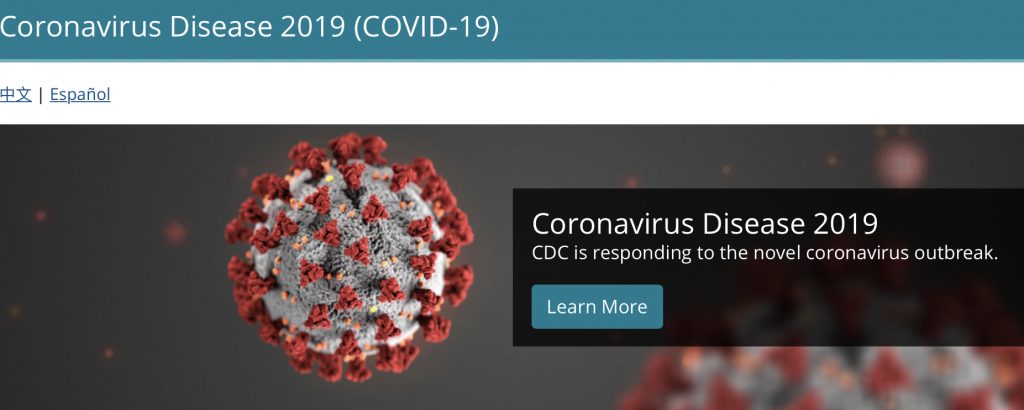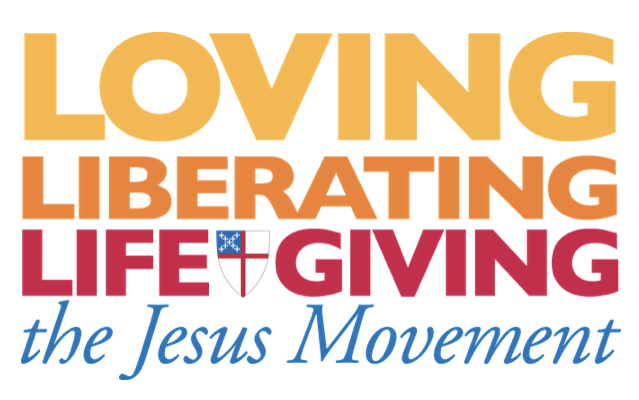
I have spent almost all of Monday working on COVID-19 — preparing for its arrival in South Dakota (which I am, alas, sure will happen), working with church leaders to figure out what we will do in services, searching in vain for hand sanitizer or anti-microbial wipes, praying about how to preach this Sunday ..

It’s my day off, but this outbreak of a disease that threatens the most vulnerable among us takes precedence.
And here is what I have concluded:
• COVID-19 is a serious disease. Why? Because we don’t know enough about it, and we don’t have a medicine that directly cures it. New diseases are like this — they baffle us, and because they are baffling, we become afraid.
• Too many people are dismissive of this outbreak. “We survived bird flu, Ebola, H1N1, etc., we’ll survive this.” I literally had two medical personnel tell me this just the other day. I pointed out to them that bird flu was confined, pretty much to birds; that we didn’t have Ebola in the United States (except for those who were brought back from Africa with it for treatment); and that while H1N1 was widespread, its fatality rate was 0.001 percent to 0.007 percent. Thus far, COVID-19’s fatality rate is much, much higher: an average of 3 percent to 4 percent thus far.
• The greatest risk is to those who have compromised immune systems, are elders, or a combination of both. Far too many dismissive comments are being made about them, as well. As in, “well, it’s really only dangerous to the chronically ill and older folks.” What? They aren’t important to us?! As one friend points out, that attitude pretty much condemns the sick and elders to death. Trust me, that is not what God wants. (Want to read more about this from this friend, Charis Hill, who is far more eloquent than I on this topic? Look here. And listen. Please.) Here on the Rosebud Reservation, where we still have Influenza A and B, as well as Strep, running through our schools, that means that those children are taking home their illnesses, often to grandparents, who then get sick, which means they are more susceptible to COVID-19, if and when it arrives here. None of us should be willing to condemn our loved ones to a potentially fatal disease.
Those are just the medical conclusions that I’ve reached through a lot of research from reputable sources, including the CDC.
So what does this mean to us, those who proclaim that we follow Jesus?
First, it means we have responsibilities, duties, really, that come not from medical personnel but from God.
We who follow Jesus, who say that loving God with all our heart and mind and soul and strength and that loving our neighbors as ourselves are the two most important commandments, have a responsibility, a duty, to care for each other. We don’t get to take this swiftly spreading disease lightly. We don’t get to pooh-pooh taking practical precautions. We don’t get to tell people, “It’s not big deal.”
We who follow Jesus are called by Jesus to care for each other. To wash our hands. To limit our exposure to people with suppressed immune systems. To reach out to help those in need. To check on our relatives, our neighbors, and those most in need, to ensure they have what they need.
One more time, I want to emphasize this: We really need to wash our hands!
Good Lord, this is something we teach our children in preschool and kindergarten. Washing our hands is simply basic hygiene — only now, it has taken on even more importance. So, do it! Wash your hands thoroughly as often as you can. Sing a song whilst doing so – the Happy Birthday song, or the ABC song, twice through. Or, if you know it, sing the Doxology —in English, Lakota, or whatever language you want. (Check out these videos below.) Just don’t go too fast — that would defeat the whole purpose. If you can’t get to soap and water (a real concern in churches that don’t have running water), use some form of hand sanitizer.
When it comes to passing the Peace in church? No more hand-shaking. No matter how culturally important it is (meaning, this is incredibly important among the people I serve), please, just stop. In our churches, we’ve introduced the Elbow Bump — just make sure you don’t bump too hard — elbows can be sharp! We’ve also asked people to stop hugs and kisses … just to be safe. Why not?
We don’t have any confirmed cases of COVID-19 in South Dakota yet, but already, we have asked people to be very careful intincting (dipping the bread into the wine), or to simply take a sip from the chalice. If people don’t want to sip, it really is OK to not receive the wine along with the bread. (If COVID-19 arrives in the state, then we probably will stop sharing the cup in any form. We are waiting for more guidance on this.)
But what about when we are not in church? What about when we are going about our daily lives, with all the people with whom we are in contact on a day-to-day basis?
Well, that’s where Jesus’ call to us to care for others really comes to the fore.
We all have neighbors who need help.
Help them.
Ask them if they need you to go shopping for them. Whether they need anything brought to them. Do they need some cooking done for them? Cook!
Whatever they need, we who follow Jesus are called to care for them.
This isn’t an option, by the way. Jesus never told us to help when we feel like it, or when it’s convenient. He said that loving our neighbor was one of the two most important commandments.
So we obey it.
There are other things we can do as well:
• Share our cookies. (OK, this is based not only on Jesus, but also on All I Really Need to Know I Learned in Kindergarten, by Robert Fulghum.) If you have something that another person needs, share it: Food, water, clothing, rides to the store, firewood, you name it, share it.
• Do not be afraid. That’s one of the most common things God says, usually via angels, to God’s people: Fear not! Not because God will protect us from this illness, but because we know that this life is transitory, that we have the promise that we get to spend the rest of our lives with Jesus, that there is more to life than this life. Don’t let fear paralyze us. Be brave. Go into the world and do the things that Jesus told us to do.
• Do not hoard. For some reason, not only is there a shortage of hand sanitizer (which kind of makes sense), but there is a shortage of toilet paper! People! How much toilet paper do any of us need?! Get what we need, and leave the rest for others in need. And please, we can all leave on the shelves the things that medical personnel and people with suppressed immune systems need, especially N95 face masks. Most of us will not need them; let’s make sure those who do can get them.

• Love. Need I say more?
• If you have been exposed, or think you may have been exposed, stay home. I know this is not possible for everyone – less than 50 percent of employees in the United States has paid sick leave. I’m praying that our government will do something about that. But if you can stay home, please do so. Not just for yourself, but for everybody.
We live in what are shaping up to be very scary times.
But we are not called to live scared.
Instead, we who follow Jesus are called to live sacred lives, holy lives.
And sacred, holy lives are not lived in fear, are not dominated by la-di-dah attitudes, and do not include hoarding, or “me-first” attitudes.
We follow Jesus.
Now is the time for us to step up and act like it.




